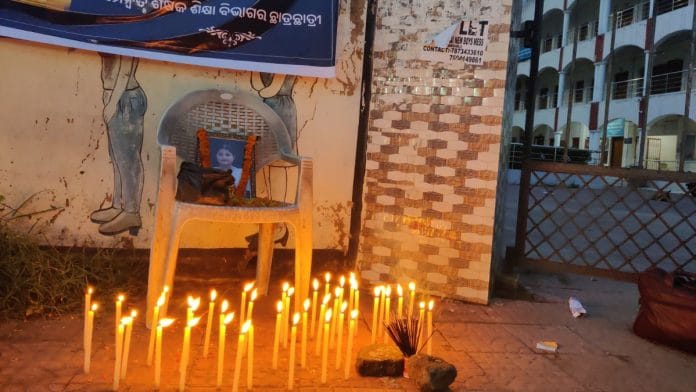Balasore: Soumyashree Bisi was just 20, a B.Ed student at Fakir Mohan Autonomous College in Balasore, Odisha, who wanted nothing more radical than to teach in a classroom. She taught self-defence to school girls and stayed politically active, doing everything a strong, driven student would. But when the system she believed in turned its back on her, she walked into college with a bottle of petrol, poured it over herself, set her body ablaze, and ran through the corridors—ending her dream in fire.
“She wanted to be a teacher. She couldn’t fulfill that dream—but she taught the world what it means to stand up for yourself. And what happens if you don’t,” said her father, Balaram Bisi.
On 12 July, Bisi stood outside the principal’s office of her college, drenched herself in petrol, and struck a match. She died two days later at AIIMS Bhubaneswar with over 95 per cent burns–just three hours after President Droupadi Murmu visited her and assured the family of justice.
For months, Bisi had accused her Head of Department, Samir Kumar Sahu, of sexual harassment, blackmail, and relentless mental torture. An Internal Complaints Committee set up by the college did not uphold her allegations against the HOD and even asked her to withdraw her complaint. Yet, paradoxically, it still recommended his removal. Despite this, the administration allegedly urged her to “compromise”. It was only after her death that the police finally arrested Sahu.
“Maybe if, instead of 15, there had been 315 students standing with Bisi, she would still be alive today,” Soumyashree Bisi’s friend.
The flames have ignited Odisha. Students at FM Autonomous college are marching, regional political party Biju Janata Dal (BJD) enforced an eight-hour shutdown in Balasore, and eight opposition parties have called for a statewide ‘Odisha Bandh’ on 17 July, demanding justice for Bisi. While Chief Minister Mohan Charan Majhi has vowed “exemplary” punishment, Bisi’s father has urged leaders to seek justice without turning his daughter’s death into a political battleground.
As an official inquiry digs into administrative lapses, one searing question lingers in the smoke she left behind: Will Bisi’s final, desperate lesson finally force college campuses in India to protect the students?
“When she filed the complaints against the HOD, around 300 students stood against her. They sided with him, gossiped about her, and posted on social media, accusing her of lying and seeking attention. We were just 15 students who supported her. They turned it into a political issue when all we ever wanted was justice,” said Kashish, an 18-year-old friend of Bisi. “Maybe if, instead of 15, there had been 315 students standing with Bisi, she would still be alive today.”
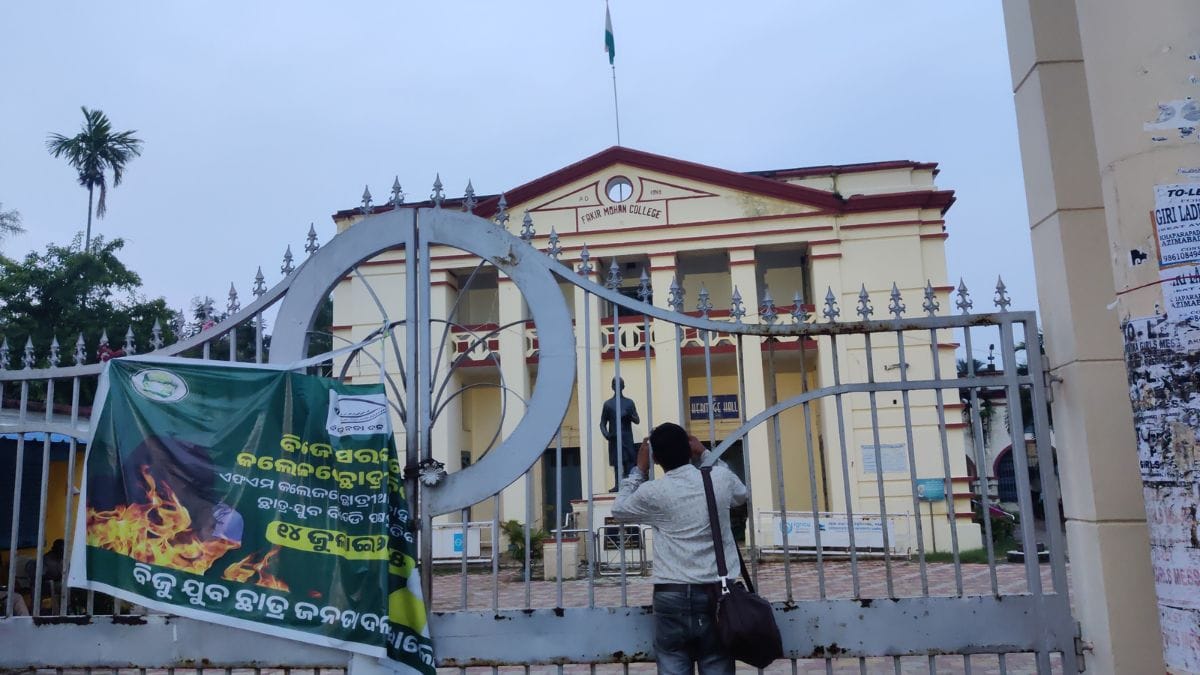
Timeline of abuse
Back in December 2024, Bisi had attempted suicide by consuming a large number of sleeping pills in her rented room near the college in Balasore.
For Soumyashree Bisi, it was a slow burn of humiliation and harassment. Living in Balasore, two hours away from her home in Palasia village of Bhograi tehsil, she taught self-defence in schools to support herself while pursuing her B.Ed.
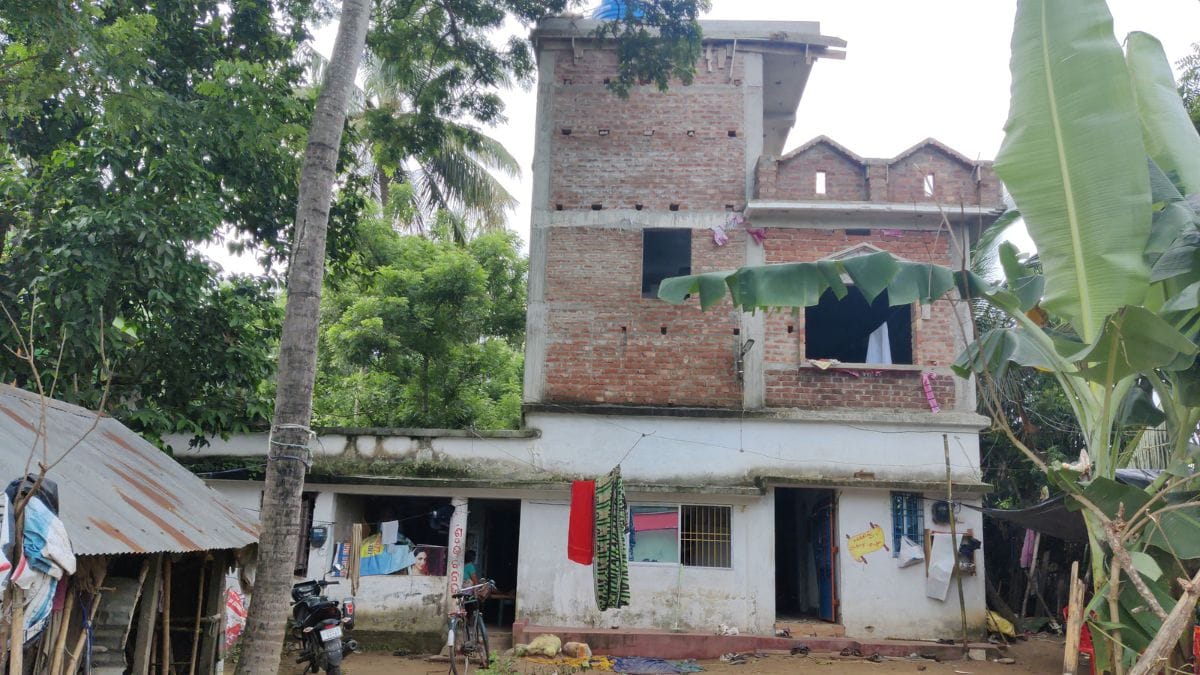
The nightmare began six months before her death. In the middle of an open field on campus, her Head of Department, Samir Kumar Sahu, asked her for a ‘favour’. When she asked what he meant, he smirked and said, “You’re mature enough to know what kind of favour I’m talking about.”
“After that, Sahu wouldn’t even let her enter his class if she was five minutes late. One day, he openly declared in front of everyone that he wouldn’t allow her to sit for the exams,” said Jyotirekha Bhuyan, Bisi’s friend and a fellow member of the ABVP wing on campus. “He even called her parents multiple times, saying their daughter was getting out of hand and skipping classes.”
Her attendance had fallen short, not just because of the harassment she faced. She had also lost close relatives during that period, forcing her to take leave from college.
Back in December 2024, Bisi had attempted suicide by consuming a large number of sleeping pills in her rented room near the college in Balasore. “Even after that, instead of asking what she was going through, some female professors told her parents, ‘Look at what your daughter is doing. Tell her to stop’,” said Kashish, a close friend. “No one bothered to ask what had pushed her to that point. She was struggling mentally, and we all could see that, but the college refused to even listen to her.”
Bisi came from a modest background and rode her bicycle everywhere. She enjoyed making Instagram reels on trending songs and had a private account, along with a public one. A passionate performer, she actively participated in her college’s drama society, just as she had in school. According to her family, she had a real talent for it.
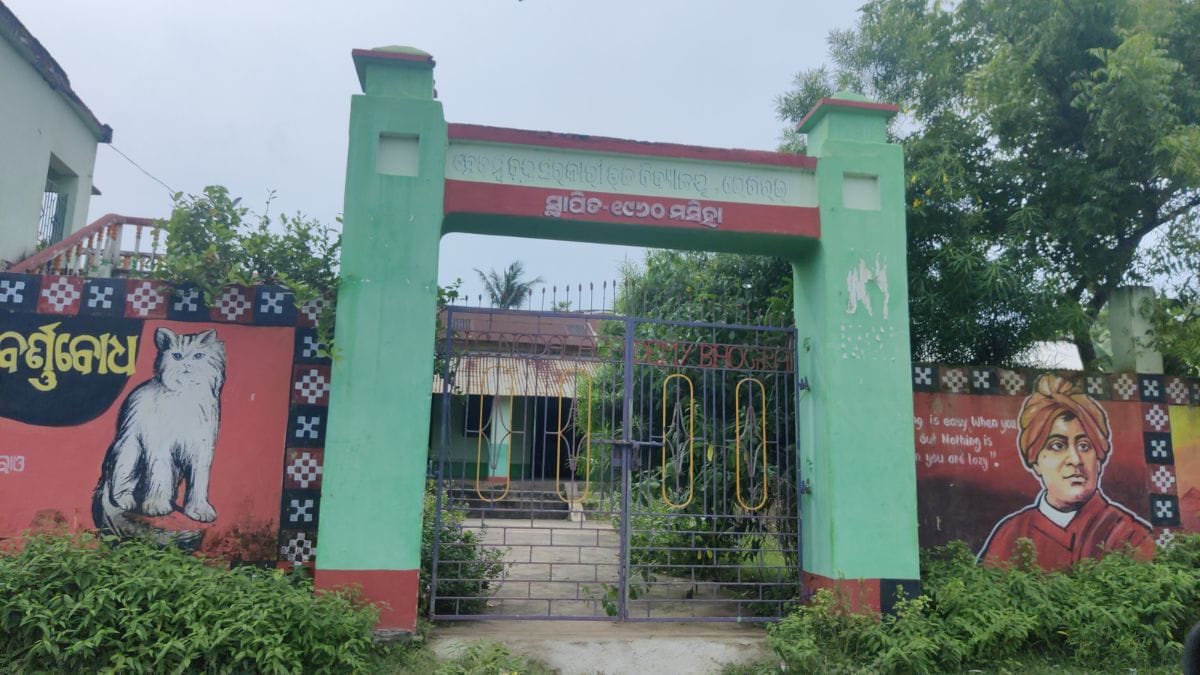
Bisi’s father works as a clerk at a nearby college, while her brother is a medical representative, promoting and selling medicines to hospitals and pharmaceutical companies.
After learning about the sexual and mental harassment Bisi was facing in college, her father and brother filed a complaint through the ABVP wing—which Bisi herself was an active member of—following an earlier incident three months ago. Bisi later filed her own formal complaint on 30 June.
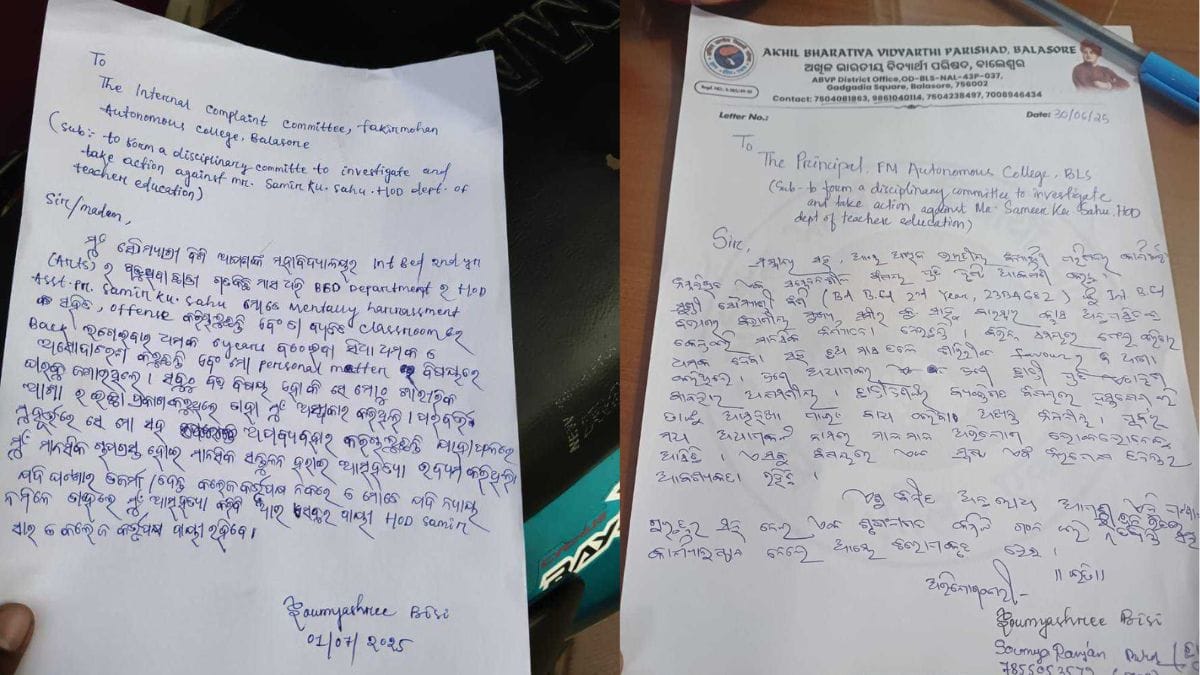
“After Bisi’s complaint, the Internal Complaints Committee (ICC) of the college was reconstituted, comprising six faculty members and three students. The committee submitted its report to the principal on 9 July,” said the now in-charge principal of the college, Firoz Kumar Padhi.
According to a Superintendent of Police (SP) in Balasore, Raj Prasad, the ICC initially recommended Sahu’s immediate removal as HOD, but the principal dismissed the report, delayed action, and kept students uninformed. Rather than offering support, he told Bisi the report “lacked truthfulness” and warned that a false complaint could amount to sexual-harassment defamation.
“I suspect that the principal pressured her to withdraw her complaint during those meetings,” said Balasore SP Raj Prasad.
As per reports, Prasad also said that the principal had assured the police to finish the inquiry within five days and submit a report. It never happened. The principal didn’t even inform the Higher Education department about Bisi’s complaint.
“According to phone records and witness accounts, Bisi visited the principal’s office three times between 11:30 am and 12:30 pm on 12 July. She was on a call while leaving at least once. Investigators are still determining whether she called the principal or was summoned by him. I suspect that the principal pressured her to withdraw her complaint during those meetings,” said Prasad.
The principal, Dilip Ghosh, in his statement to the media, did mention carrying out a mediation between Bisi and the accused professor.
“Since Sahu had also accused the girl of lying, I called him to my chamber in presence of Soumyashree and offered them a mediation. However, she was not in a good frame of mind and stormed out. A few minutes later, we heard an explosion and were told that the girl had set herself afire,” said Ghosh.
Balasore sub-collector Madhusmita Samantray has said that Bisi was still working in the college campus while the ICC inquiry was on. It was a lapse on the principal’s part.
Also read: Delhi’s Rs 1,500 crore Signature Bridge has no CCTV. DU student’s death sparks safety alarm
Sympathy and support
The burn ward at AIIMS Bhubaneswar had never seen such chaos. Police vans crowded the entrance, while media crews stood with cameras poised, hoping to get information on a case that had shocked Odisha.
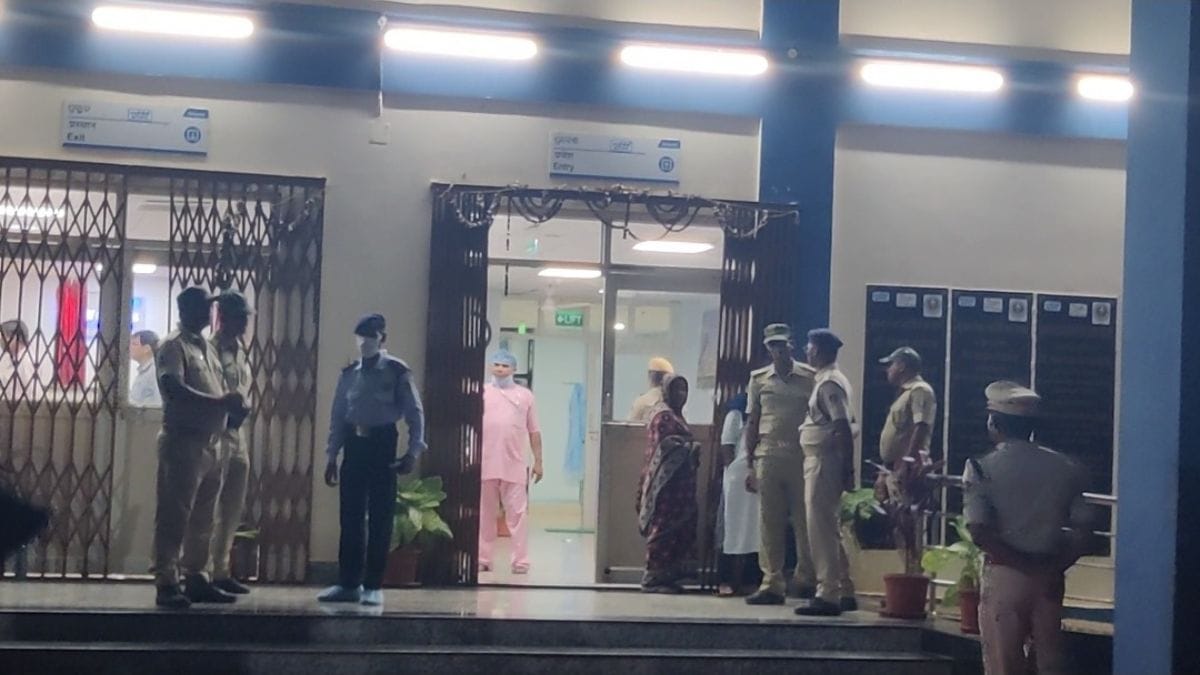
Hours before President Droupadi Murmu’s visit, flowers were brought in to welcome her. Security personnel waited in the sweltering heat, and reporters grew restless as the President wrapped up the AIIMS convocation. But she quietly entered through the back gate, met Bisi’s family, and left, avoiding the cameras.
Chief Minister Mohan Charan Majhi, Union Education Minister Dharmendra Pradhan had also come to assure the family of justice and full government support.
However, behind the flood of promises, hope was fading. The family knew that surviving a 90–95 per cent burn was nearly impossible. The fire had ravaged her body—damaging her kidneys, respiratory system, and vital organs. Despite intensive care, Bisi succumbed to her injuries at 11:46 pm on 14 July 2025.
The high-profile visits drew national attention. The Chief Minister of Odisha announced Rs 20 lakh in financial aid for the family and promised strict action against those responsible. Soon after, college principal, Dilip Ghosh and the accused professor, Samir Kumar Sahu, were arrested on charges of abetment to suicide and sexual harassment. Both are under judicial custody now.
Inside the burn ward, a heavy silence hung in the air. Around 12 to 15 family members sat motionless, consumed by helplessness. Bisi’s mother stared blankly into space, eyes glassy with tears, as relatives held her close, but no one spoke.
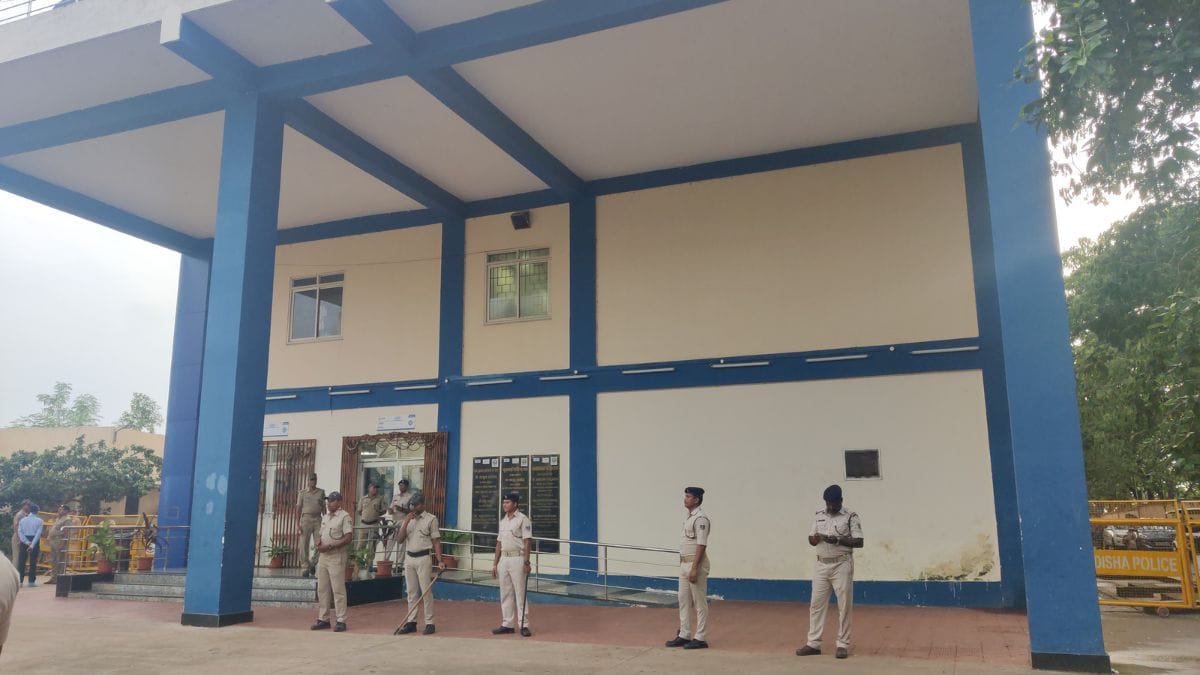
Her father stood nearby, eyes fixed on his wife. “I don’t know what will happen. I don’t know anything,” he said, his voice low and cracking. “Ask the others… they know more. My daughter is fighting for her life there. What can I even say at a time like this?”
Outside, local opposition politicians came and went, giving soundbites to the media, making promises, and demanding justice–each trying to stake their claim in the unfolding tragedy.
While some called for justice, others remained skeptical.
“Bisi just wanted to scare the college–send a message that if they didn’t act, she’d set herself on fire,” said one college student standing outside the hospital. “Her attendance was low, and with that, she couldn’t even contest student elections. Maybe she thought threatening them would work. But the fire spread too fast—no one expected it to go this far. Honestly, it feels like she was influenced by ABVP members to take such a step.”
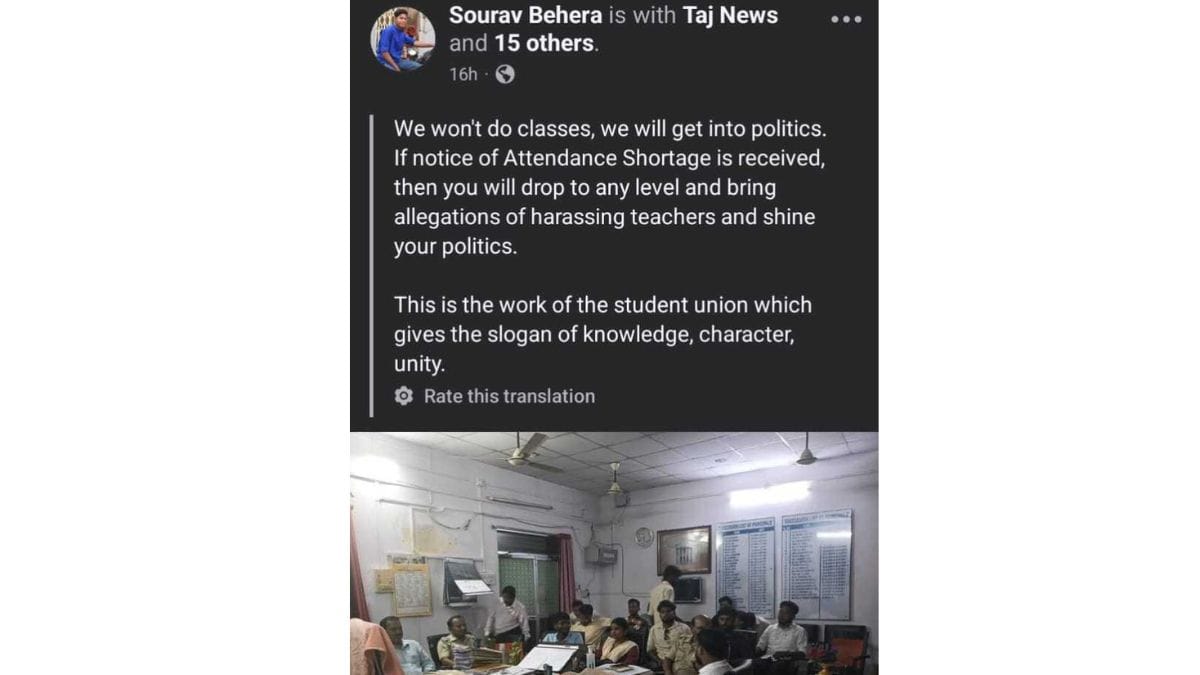
Some of the online harassment Bisi faced was disturbingly cruel and vicious, with fellow students going as far as urging her to take her own life. Comments like “ just go die already,” “She’s got a powerful weapon like any other girl—looks like she finally used it,” “Girl, go ahead and kill yourself. But honestly, your story sounds fake,” were made after she had filed the complaints against the HOD.
A boiling controversy
The tragic self-immolation of Bisi has turned into a political battlefield, with student groups and political parties trading accusations over who failed her, and why. What began as a case of alleged sexual harassment and institutional neglect quickly spiraled into a storm of blame games and protests.
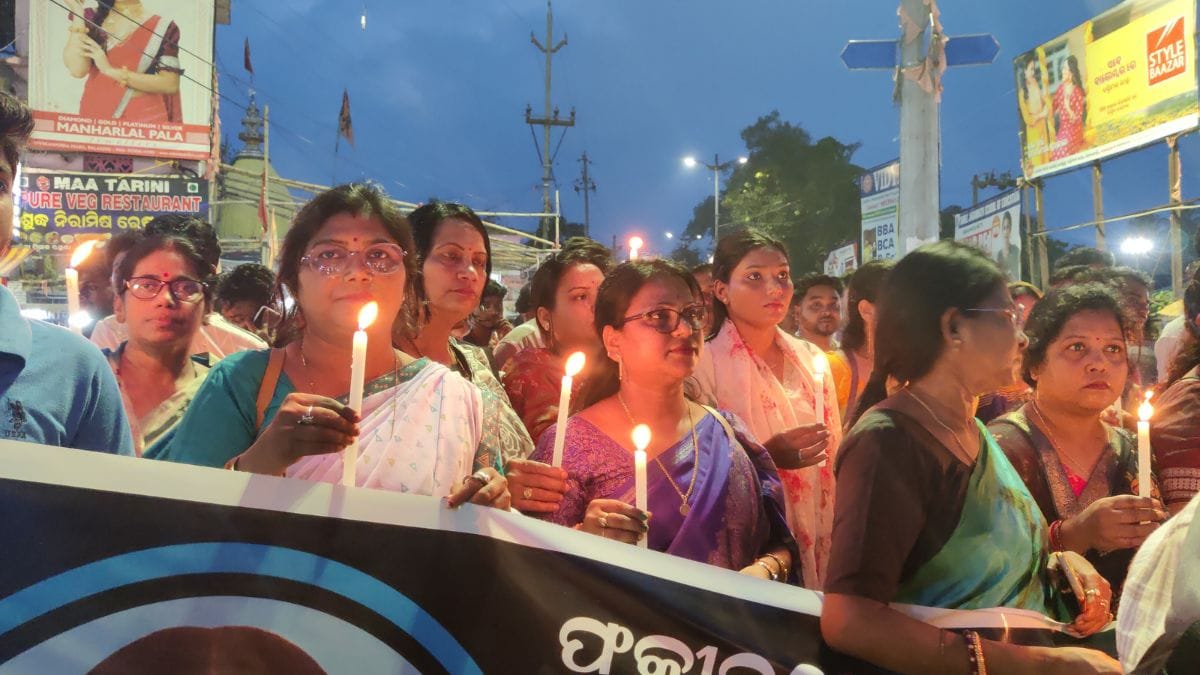
The Akhil Bharatiya Vidyarthi Parishad (ABVP), affiliated with the BJP, was the first to raise its voice after Bisi’s death, calling it a heartbreaking example of “institutional failure and character assassination.” Highlighting her role as a self-defence trainer and active ABVP member, the group alleged that Bisi had been targeted for her political affiliation.
“NSUI, the student wing of the Congress, started spreading defamatory posts about Bisi online—claiming she had made up the harassment allegations just to seek attention,” said Kashish, one of Bisi’s close friends. She accused NSUI of failing to stand by Bisi when it mattered most.
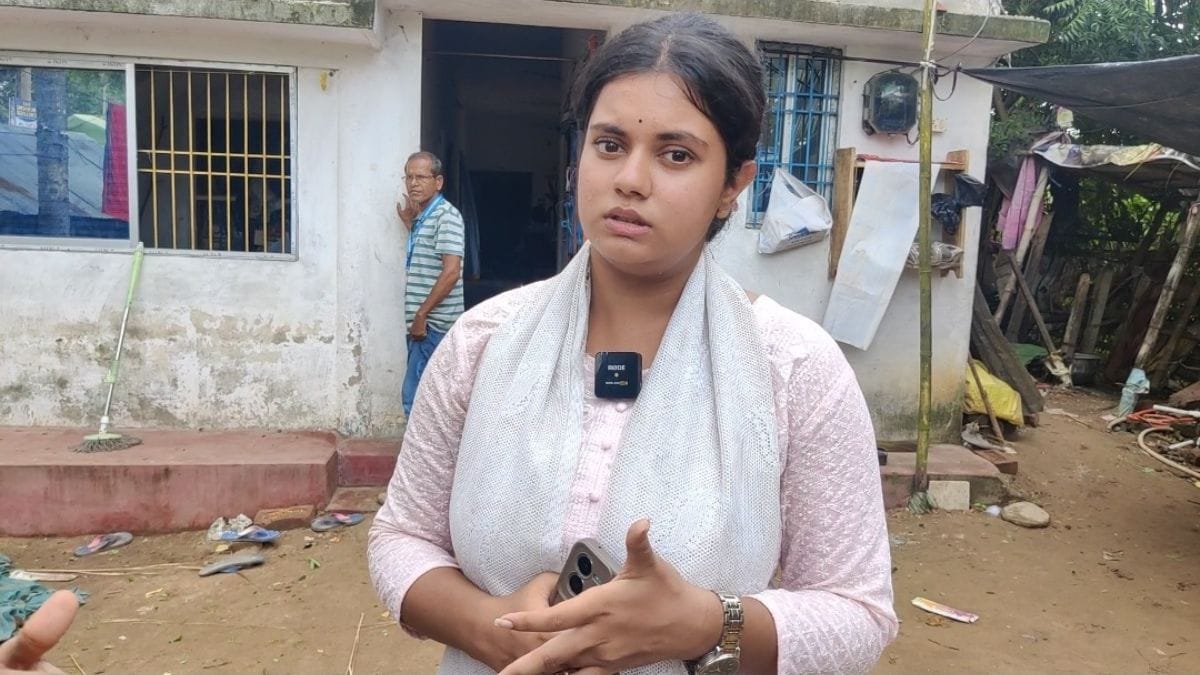
Several screenshots of social media posts by NSUI members mocking Bisi surfaced online. However, after her death, NSUI shifted its stance, calling for the arrest of the accused professor, Sahu, the resignation of the Odisha Chief Minister, and mental health support for students on campuses. They organised protests across Odisha and in Delhi, wearing white t-shirts and demanding justice.
“Now they’re blaming us—saying we, the ABVP, couldn’t even protect our own member,” said Vishwajeet Patra (24), national executive member and media coordinator of ABVP’s Odisha unit. “It’s hypocritical and opportunistic. They did nothing when she needed support, and now they’re pointing fingers.”
The political heat intensified as BJD, led by Naveen Patnaik, joined in, expressing grief and calling for a judicial probe. The party held a candlelight vigil and staged a gherao of the Lok Seva Bhawan on 16 July. Congress, too, jumped in, with Rahul Gandhi publicly questioning the BJP-led government’s inaction and joining hands with seven other parties to call a statewide Odisha Bandh on 17 July.
FM College remains closed, with classes and admissions suspended indefinitely. Protests rage across Odisha and beyond. But as political factions battle over the narrative, the real issue—deep-rooted institutional apathy and the urgent need for student safety—remains at the heart of the crisis.
Those who knew Bisi remember her not as a victim, but as a bright, spirited girl who brought warmth and energy into the rooms she walked in. She loved participating in extracurricular activities and had a way of making people smile.
Her primary school principal, Bhupati Kumar Patra, recalled their last meeting with a heavy heart as he stood among the mourners at her last rites.
“I was walking past her house when I suddenly heard, ‘Sir! Sir!’” he said, smiling faintly. “She came running to me and said, ‘I’ll become a teacher too. Soon, we’ll be teaching together in the same school.”
“That was a few years ago–but I still remember her voice.”
(Edited by Ratan Priya)



